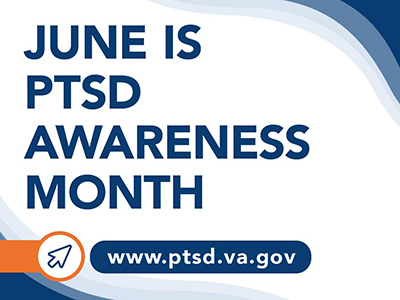Many veterans suffer from PTSD and may qualify for healthcare and compensation for their mental health conditions that resulted from their military service. “Veterans often face barriers when applying for their benefits through the U.S. Department of Veterans Affairs. The Veterans Legal Clinic strives to break down those barriers by advocating on behalf of veterans to connect them with benefits for treatment and support,” says Betty and Michael D. Wohl Veterans Legal Clinic Executive Director Beth Kubala.

The Veterans Legal Clinic (VLC) at Syracuse University College of Law provides legal representation to veterans and their families seeking benefits from the U.S. Department of Veterans Affairs or upgrading a military discharge through the various military branches. The VLC is staffed by student attorneys in their 2L or 3L year at the College of Law, many of who are veterans themselves or who have a connection to the military and a passion for serving veterans. “Our law school students leverage their critical thinking skills and analytical abilities to help veterans navigate a complex administrative process. We shoulder the legal process so that the veterans can focus on treatment and healing,” says Kubala.
“PTSD is an especially difficult diagnosis because it is often not recognized in veterans for many years after their service. They usually do not see it coming on while in the service because they are focused on their mission. All too often, these early symptoms of PTSD can lead to out-of-character behaviors that, in some cases, result in a veteran’s administrative discharge from service for that misconduct,” says 2L Seth Owens, a student in the VLC.
This summer, many student attorneys are assisting veterans with disability claims for PTSD. “The government has taken steps over the past decade to expand access to VA benefits for veterans experiencing PTSD. But it’s not easy to navigate and secure these benefits, especially for veterans facing the adverse consequences of PTSD in their daily lives. Another student and I are working with a veteran who was not diagnosed with PTSD, nor had he ever heard of PTSD, until after he was discharged. We are helping him connect his undiagnosed PTSD to the circumstances surrounding his discharge, with the goal of getting him full care. I can’t imagine taking that on alone,” says VLC student 2L Natalie Bravo.
“Currently, we are working with a decorated 15-year veteran, separated under unfavorable circumstances, who is struggling to get full care for his PTSD almost 16 years after his discharge. This process has been extremely eye-opening and makes one realize how challenging the process of getting the right care can be. The benefit of hindsight is allowing us to trace the onset of his PTSD symptoms to the trauma he experienced on his last deployment before being administratively discharged,” says Owens
He continues, “As we have learned more about the effects of PTSD, it is especially important to advocate on behalf of veterans who were separated under these circumstances because it impacts their ongoing ability to receive treatment and be compensated for their service to this country. At the Veterans Legal Clinic, we have a tremendous opportunity to use the skills we are learning at the Syracuse College of Law to directly improve the lives of our veteran clients. Providing a direct application of our legal knowledge, outside resources, or simply a compassionate ear to listen to their circumstances can all be beneficial to help that veteran navigate a challenging administrative process to get the right care for their PTSD.”
The VLC serves two critical functions on the Syracuse University campus. The VLC provides legal advice to veterans and their families and provides a training opportunity to empower law school students as veteran advocates. Student attorneys at the VLC learn about veteran’s law, military law and federal administrative law. Student attorneys manage actual veteran clients and their cases, engage in fact investigation, draft persuasive letters and briefs to the various governmental agencies, and even have the opportunity to orally advocate for clients.
“The Clinic is administrative law in action. We are navigating statutes, regulations and department policy to be the best advocates for our veterans. It’s great legal experience, but even more so it’s a fulfilling experience,” says Bravo.
